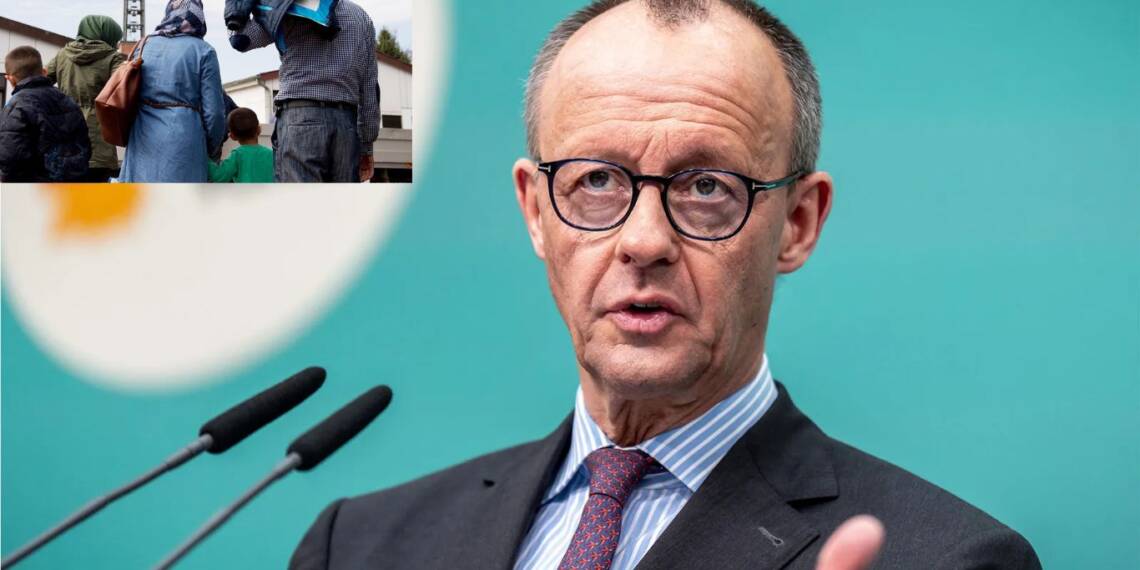Germany has long been a country that offers safety and protection to people fleeing war, violence, and danger. Since the refugee crisis in 2015, millions of people have arrived, many of them from Syria, Afghanistan, and Iraq. Some received full refugee status, while others were given what is called subsidiary protection.
People with subsidiary protection are those who do not qualify as refugees under international law but still face serious threats, like torture or war, if they return to their home country. They are allowed to stay in Germany, work, receive social support, and live safely. But one major difference is that they do not automatically have the right to bring their family members to join them.
Recently, Germany’s government—made up of the Christian Democrats (CDU), the Christian Social Union (CSU), and the Social Democrats (SPD)—decided to suspend family reunification for people with subsidiary protection for at least two years. This move has raised questions and criticism, especially from liberal groups and those affected. But the government says it has good reasons for doing so.
Why Did the Government Make This Decision?
German cities and towns say they are reaching their limits. Many are struggling to provide housing, education, healthcare, and support services for the people already here. If more families arrive quickly, these services could become even more stretched. The government says this could hurt both newcomers and long-time residents.
There are around 351,400 people in Germany with subsidiary protection—most of them from Syria. If each of thembrought over their family, the number of new arrivals could be very high. The government wants to avoid a situation where people come faster than the country can handle.
This situation has caused a large number of people from the muslim community, which is disturbing the social fabric of Germany, and extremism has increased in the last decades. Migration was one of the main issues in the February election this year. Alternative for Germany, the second largest party, fought their election on the issue and garnered more than 20 per cent of the votes. This shows people are frustrated with these liberal laws, which bring more and more people to Germany from conflict zones.
Things like social welfare payments, schools, and medical care are already expensive and difficult to manage. Allowing large numbers of people to reunite all at once could put more pressure on these systems.
Family reunification has not completely stopped. Since 2018, Germany has been allowing up to 1,000 family visas per month for people with subsidiary protection. In 2024, about 12,000 visas were issued under this system. The idea is to keep reunification possible, but at a pace Germany can manage.
What About Human Rights?
Critics argue that family separation causes emotional pain and mental health problems. Many believe it goes against the right to family life, which is protected under Germany’s Basic Law and the European Convention on Human Rights.
However, legal experts say that if a family could live safely in another country, like their home country, Germany is not always required to allow them to reunite here. Courts will likely look at this issue more closely in the future, but it could take years for a final decision. Germany is more responsible for their own nation and their own public. In the name of the protection of the Human Rights of people from other nations, it cannot do injustice to the Germans.
What Happens Next?
For now, the rule limiting Family reunification will stay in place for two more years. The government promises to review the situation and adjust the policy if needed. Meanwhile, families who want to reunite will continue to face long waits, complicated paperwork, and limited visa spots.
Final Thoughts
According to the DW report, Mohammed, a Syrian father living in Germany with his disabled son, shows how painful and complex this issue is. But the government believes that this policy is necessary to protect Germany’s ability to care for those who are already here, keep social peace, make sure the social fabric is not being disturbed, and local culture and population are safe.
In short, Germany is taking steps towards solving the migration problem in their country, which has created several social challenges. However, a lot to achieve in the area.








